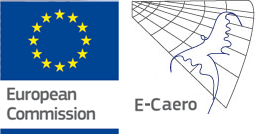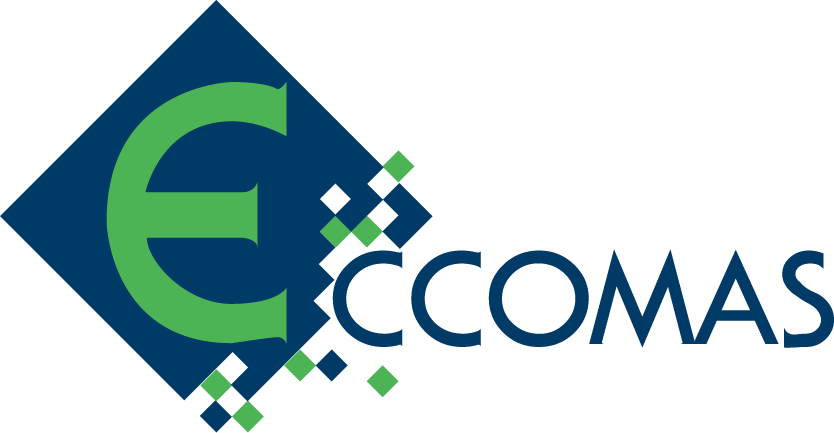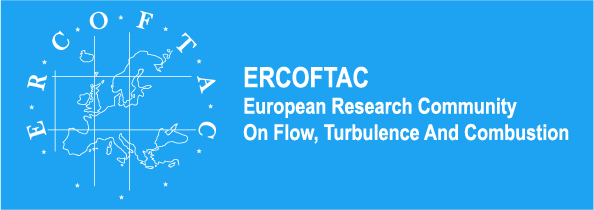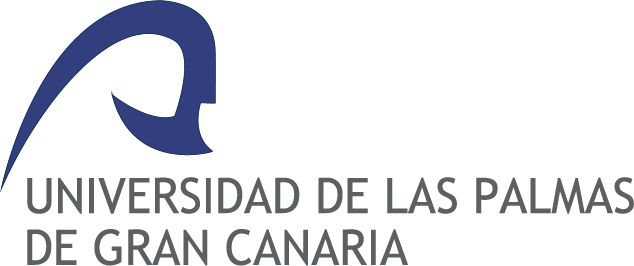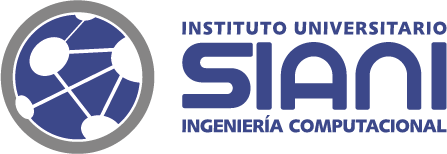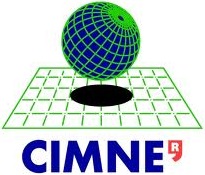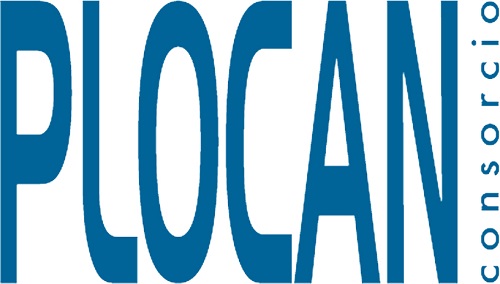Minisymposia Description
1. Applications of Game Theory to Industrial Optimization Problems
Carlo de Nicola, Lina Mallozzi, University of Naples Federico II, Italy
Synopsis
The aim of this session is to provide a forum for theoreticians and practitioners from academia and industry to present results in decision making and optimization by using Game Theory tools. A great number of applications in disciplines as Engineering, Economics, Social Sciences has led to notable interest in Game Theory from theoretical as well as computational aspects. Non-cooperative Game Theory allows to study the strategic interactions between the involved agents and obtain equilibrium solutions.
The competing situation that is typical in a non-cooperative Game Theory model describes well several concrete applications. Concepts as Nash equilibrium, Pareto frontier, security strategy are deeply used in several models and empirical analysis. Several techniques can be used to compute the equilibrium strategies, deterministic or stochastic optimization models and genetic algorithms among the others.
Topics
Authors are invited to submit papers on one or more of the following topics:
- Solution Concepts in Game Theory
- Computational Aspects of Equilibria
- Security Strategy
- Nash Equilibrium
- Robust Optimization
- Hierarchical Decision Models
- Pareto Optimality
- Evolutionary Strategy
- Dynamic Stability
Moreover, papers dealing with Game Theory in any application area as specified in the Conference announcement are welcome.
2. Multi-disciplinary Design Optimization
E. Minisci and M. Vasile, University of Strathclyde, United Kingdom
Synopsis
Across all fields of Engineering Sciences, many design problems are multidisciplinary
in nature. An optimal design can be achieved if all the disciplines are concurrently considered in an integrated approach. In MDO the whole is more than the sum of the parts, therefore the optimum of the integrated problem is superior to the design found by optimizing each discipline independently. However, including all disciplines simultaneously significantly increases the complexity of the problem. The optimal design of each discipline can be in itself a hard and computationally intensive optimization problem. In addition, the definition of the level of fidelity of the model for each discipline, the interexchange of variables of different nature (the output of one discipline can become the input to another) and the increased dimensionality, contribute to make the problem considerably harder. The largest number of applications is in the field of aerospace engineering, such as aircraft and spacecraft design in which aerodynamics, structural analysis, propulsion, control theory, and economics are integrated in a single optimization process. But many techniques have been developed and applied in a number of different fields, including automobile design, naval architecture, electronics, computers, and electricity distribution.
Topics
This special session intends to collect many, diverse efforts made in the development of
methods and techniques for multidisciplinary design optimization across all the fields of
engineering and physical sciences. The session seeks to bring together researchers from around the globe for a stimulating discussion on recent advances in MDO methods for the solution of any engineering problem. The session looks with particular interest for (but not limited to) nature inspired methods specifically devised, adapted or tailored to address problems in MDO applications or nature inspired methods that were demonstrated to be particularly effective at solving MDO related problems. Furthermore, new examples of real-world applications of MDO techniques are welcome. Authors are invited to submit papers on one or more of the following topics:
- Multi-Objective Optimization Methods in MDO
- Uncertainty Treatment in MDO
- Integrated System and Control Design
- Optimization by Multi-fidelity Modelling
- Optimization by Space Reduction Techniques
- Concurrent Engineering and Distributed CE
- Distributed and Parallel MDO
- Game Theory Approaches to MDO
- Topology MDO
3. Uncertainty quantification and optimization
Dr. G. Petrone, ANSYS UK LTD, United Kingdom; Gianluca Iaccarino, Mechanical Engineering & Institute for Computational Mathematical Engineering, Stanford University, USA
Synopsis
The goal of uncertainty analysis in computational science is to determine the confidence level of results obtained with numerical simulations, in the same way it is usually done with experiments. Recent efforts in both algorithmic developments for probabilistic analysis and optimization have created new opportunities to expand the use of robustness principles in design. Specifically, the desire to account for realistic and naturally varying operating conditions in different disciplines (combustion, turbomachinery, structural mechanics, etc.) leads to the formulation of the optimization problems in the presence of uncertainty.
This special session is a forum of discussion between the research community and industry on the perspectives of Optimization, Uncertainty Quantification and Optimization Under Uncertainty, spanning from the current needs of quantifying the uncertainties in the applications and the research and development of novel methodologies and algorithms. The present session will focus on both industrial applications and basic research to bring together practitioners in a field that is experiencing enormous broadening.
Topics
Authors are invited to submit papers on one or more of the following topics:
- Industrial applications of optimization in presence of uncertainties
- Robustness principles
- Optimization Under Uncertainty
- Uncertainty Insensitive Design
- Robust design of experiments
- Game Theory for optimization and/or uncertainty quantification
- Design for Six-Sigma
- Reliability-based Design
- Controls under Noisy Inputs
- Variance-based decomposition in Optimization
4. Surrogate-Based Optimization Methods in Aerodynamic Design
E. Andrés, INTA, Spain and E. Iuliano, CIRA, Italy
Synopsis
Aerodynamic design, with particular reference to its early stages, requires to explore the design space in a global sense in order to locate the optimal candidate. Global optimization methods (e.g., evolutionary algorithms) can meet this requirement as they have the ability to work with noisy objective functions without assumptions on continuity and with a high potential to find the optimum of complex problems. However, they involve a vast number of evaluations even for a small number of design variables. As each evaluation requires a CFD complete analysis, this would make the method unfeasible, in terms of computational cost.
Therefore, there has been a raising interest in surrogate modelling which promises to provide sufficiently accurate solution of complex problems with limited or reduced computational efforts. With the term “surrogate” it is usually meant an analysis method which, in some sense, is “alternative” to the high-fidelity one (e.g., CFD) and, with respect to it, is able to provide a quicker and sufficiently accurate estimation of the quantities of interest of the simulation (e.g., the aerodynamic coefficients) and, hence, of the fitness function in an optimization process. Recently, a GARTEUR Action Group has been established to explore surrogate-based global optimization approaches. The main objective of the AG work is, by means of a European collaborative research, to make a deep evaluation and assessment of surrogate-based global optimization methods for aerodynamic shape optimization, dealing with the main challenges as the curse of dimensionality, reduction of the design space and error metrics for model validation, amongst others.
Topics
The special session is aimed at collecting and disseminating contributions and standard/new ideas in surrogate modelling and surrogate-based optimization for aerodynamic design. A particular emphasis is put on the development of fast and efficient meta-models for CFDbased optimization applications where multimodality, high non-linearity, nondifferentiability, high dimensionality and high computational cost are expected features. For these reasons, real-world industrial applications would be welcome.
Authors are invited to submit papers on one or more of the following topics:
- Data fitting surrogate modeling
- Reduced Order modeling
- Proper Orthogonal Decomposition methods
- Multi-fidelity surrogate modeling
- Global and Local Surrogate based optimization (SBO)
- Trust region approaches
- Efficient Global Optimization
- Evolutionary Search Methods
5. Adjoint-based and One-Shot Methods
Prof. Nicolas R. Gauger, RWTH Aachen University and Anil Nemili, RWTH Aachen University
Synopsis
For efficient detailed design, the use of adjoint approaches is a first essential ingredient for gradient-based optimization methods. With adjoint approaches one is independent of the number of design variables with respect to the numerical costs for the evaluation of the sensitivities needed for the optimization algorithm. In this context we also discuss so-called one-shot methods. Here, one achieves simultaneously convergence of the primal state equation, the adjoint state equation as well as the design equation. It turns out, that one-shot methods enable designs for the computational effort of a small, constant multiple of the effort of a state simulation. Integral part of these approaches are, next to suitable preconditioners for the coupled one-shot loop, gradient smoothing and shape derivatives. The mini aims to foster exchange on these topics between universities, research institutes and industry.
6. Intelligent Systems for MDO problems based on multi hybridized software
Tadeusz Burczynski, Silesian TU of Gliwice, Poland, and Jacques Periaux, CIMNE-Spain & Univ. Jyvaskyla-Finland
7. Applications in Structural and Civil Engineering Optimum Design.
David Greiner, University of Las Palmas de Gran Canaria, Spain, Jorge J. Magalhães Mendes, School of Engineering of Polytechnic of Oporto, Portugal and Rajan F. Coelho, École polytechnique de Bruxelles, Belgium
Synopsis
Optimum design in Structural and Civil engineering has become a major research topic in recent decades. It has been benefit of the recent advances in optimization techniques, both metaheuristic and bioinspired ones, as well as the deterministic approaches and classic techniques.
Topics
This session welcomes any contribution application of optimum design in the fields of structural and civil engineering, including single- and multi-objective problems. Some examples are:
- Structural Engineering including Steel, Composite and Reinforced Concrete Structures
- Space, Tension and Shell Structures
- Linear and Non-linear Dynamics
- Geotechnical Analysis and Design
- Slope Design
- Structural Control
- Fracture Mechanics
- Earthquake Engineering
- Structural Damage Detection and Identification
- Reliability-based Design Optimization (RBDO)
- Multi Scale Modelling, Multi-Scale Analysis
- Acoustics


